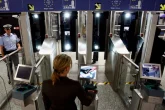Spain vs Brussels: When Protecting Consumers Becomes a European Offence
The European Commission’s decision to open infringement proceedings against Spain over its fines on low-cost airlines reads like a cautionary tale for any government daring to stand up to corporate giants. It is, on the surface, a legal dispute about baggage fees. But beneath the legalese lies a deeper question about who the European Union truly serves: its citizens or the companies that profit from them.
Last year, Spain’s Ministry for Consumer Affairs slapped five budget airlines—Ryanair, Vueling, EasyJet, Norwegian, and Volotea—with nearly €180 million in fines. The message was simple: charging passengers for hand luggage, for sitting next to their children, or for printing a boarding pass is exploitative and unacceptable. For millions of European travellers accustomed to seeing a €19 ticket balloon to €80 by checkout, the Spanish action felt like overdue justice.
Brussels, however, has taken a different view. The Commission argues that Spain’s measures infringe on the airlines’ “freedom to set prices,” invoking the Court of Justice’s rulings that allow carriers to charge for anything beyond “reasonable” hand luggage. Spain, in other words, may have gone too far in defending its consumers.
A Bureaucratic Reprimand Disguised as Legalism
It is hard to miss the irony. In theory, the EU champions the rights of consumers; in practice, it is reprimanding a member state for protecting them. By siding with the airlines’ commercial freedom, Brussels risks confirming its critics’ worst suspicions: that when consumer rights collide with corporate interests, the latter still hold the upper hand.
Spain’s Minister for Social Rights and Consumer Affairs, Pablo Bustinduy, did not mince words, accusing the Commission of “acting as the multinationals’ defence lawyer.” He’s right to feel betrayed. The fines were not a populist whim but an attempt to restore some fairness to a market long dominated by low-cost carriers’ creative surcharges and fine print.
O’Leary’s Victory Lap
Ryanair’s outspoken CEO, Michael O’Leary, wasted no time celebrating the Commission’s move, calling Spain’s sanctions “illegal.” It’s an odd spectacle: a billionaire airline boss thanking Brussels for protecting his right to charge passengers for a cabin bag. Meanwhile, Ryanair continues its feud with Spain’s airport operator, Aena, over what O’Leary calls “excessive” airport fees—while quietly raising the airline’s own fares by 21% in the last year.
The episode captures a familiar European paradox: governments trying to enforce fairness find themselves accused of protectionism, while corporations that push consumer patience to the limit are hailed as champions of free competition.
A Precedent With Wings
The Commission’s case may appear technocratic, but its consequences are anything but. If Brussels prevails, it will send a chilling message to any EU member tempted to regulate airline pricing or consumer treatment more tightly. The decision would reaffirm a vision of Europe where market freedoms trump social protections where even the right to bring a bag on board is subject to deregulated “choice.”
Spain has two months to defend its case. It should do so vigorously, not just for the sake of its own policy, but for every traveller who has ever been told their handbag doesn’t qualify as “hand luggage.”
Sometimes, defending consumers means breaking a few European eggs.











